Keywords: Paul
There are more than 200 results, only the first 200 are displayed here.
-
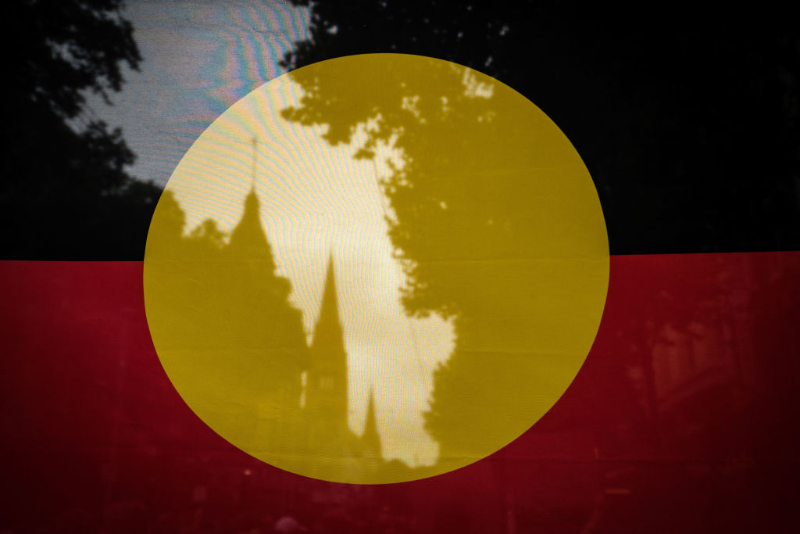
AUSTRALIA
- Dean Ashenden
- 03 May 2022
6 Comments
The danger is that unless commissions and inquiries are accompanied by other ways of telling other truths they will inadvertently help to shrink that national story into the story of victims who in fact have never been only victims, and of unmentioned perpetrators who in fact have never been only perpetrators. They risk preaching to a more-or-less converted majority and to an implacably unconverted minority.
READ MORE 
-
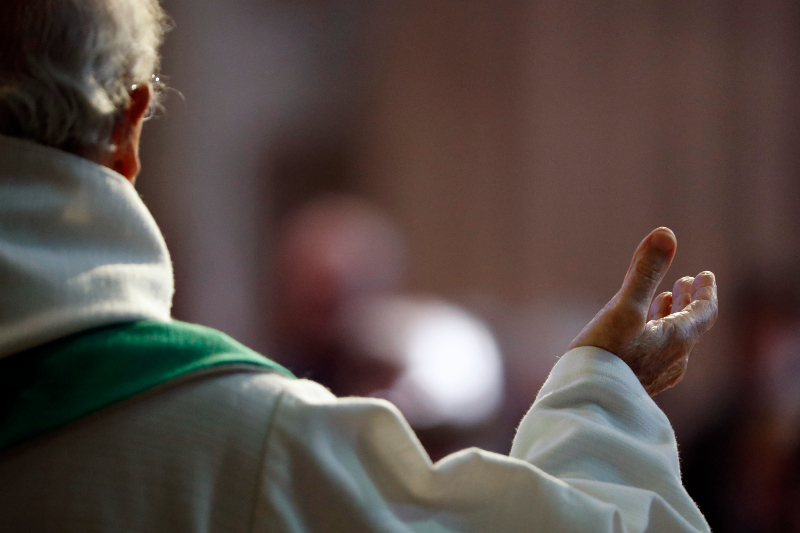
RELIGION
- Andrew Hamilton
- 03 May 2022
9 Comments
We should not underestimate the difficulty that people who represent independent branches of the same organization face when drawing up an agreed statement on contentious issues. Even the widely applauded Uluru Statement from the Heart did not secure the support of all Indigenous groups. If the Bishops Statement was to be effective it had to be supported, or at least tolerated, by all members of the Conference, despite their differing views about political and church issues and the priority that should be given to them in advocacy.
READ MORE 
-

RELIGION
- John Warhurst
- 26 April 2022
22 Comments
The Church must speak up to be relevant, but those who seek to ‘speak for the church’ must be brave. They risk exposing themselves to claims of bias unless they stick to a very narrow agenda and speak in extremely measured terms. Yet if they are too bland they risk being irrelevant to the sharp end of political debate and their intervention becomes little more than a symbolic ritual.
READ MORE 
-

AUSTRALIA
- Andrew Hamilton
- 07 April 2022
6 Comments
Palm Sunday alternates between March and April. When, as this year, it is celebrated in April it keeps company with a number of days that provoke us to ask what and who matter, what and whom can you trust. If it is a cruel month, it is so because it tests, even mocks, our comfortable assumptions. In a year overshadowed by manifestations of climate change, of persistence of Covid and of the horrors of war, it is not a bad month to endure an election.
READ MORE 
-
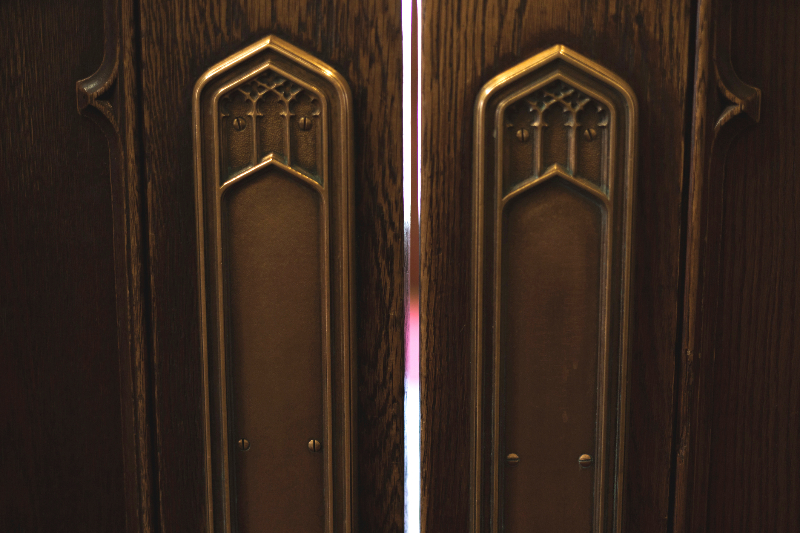
RELIGION
- John Warhurst
- 05 April 2022
19 Comments
The 280 Plenary Council (PC) Members have just taken another major step towards the Second Assembly in Sydney on 3-9 July. Yet it is difficult to have a proper public conversation about this step because it has taken place behind closed doors. Towards the Second Assembly comes a long way under the guidance of the four writing groups, whose membership has not been made public. Though it is a mixed bag, it is probably the best document emerging from the PC, making it even more frustrating that it is not in the public domain.
READ MORE 
-
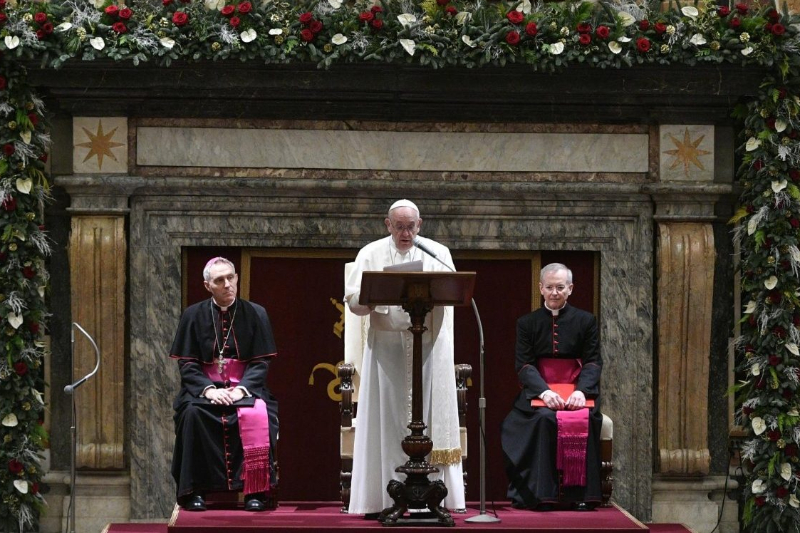
RELIGION
- Brian Lucas
- 29 March 2022
12 Comments
Prior to the conclave that elected Pope Francis, the Cardinals who met together identified the need for a reform of the Vatican finances and a broader reform of the Roman Curia. Shortly after Francis was elected, work began on the reform of the Roman Curia. There was wide consultation including with the various bishops’ conferences around the world.
READ MORE 
-

ARTS AND CULTURE
- Cherie Gilmour
- 29 March 2022
13 Comments
A house bursts into flames as it’s submerged in floodwaters. A doctor tells a cameraman filming a dying Ukrainian child to send the footage to Putin. A newspaper delves into the murder of a young woman. It’s like a fever dream: a pandemic bleeds into the edges of a global war. The news presents information, and it has no moral duty to tell us how we should feel about it or help us untangle the knot of feelings which emerge.
READ MORE 
-

RELIGION
- Andrew Hamilton
- 24 March 2022
10 Comments
Any program of church reform will have soon to ask Chernyshevsky’s question, What is to be done? It is a dangerous question — he wrote his novel from jail and spent much of his life in exile or imprisonment. Discussion of Church matters is mercifully less perilous today, but the question does invite a radical repiecing of the connections and tradition and energies that constitute Catholic life.
READ MORE 
-

AUSTRALIA
- Barry Gittins
- 21 March 2022
6 Comments
Like the trusting frog, voters have in the backs of their minds the inkling that when a government achieves power, they lavish time, energy and resources on staying in power. Promises are non-core, or open to interpretation, or de-prioritised as new issues bob up to the surface.
READ MORE 
-
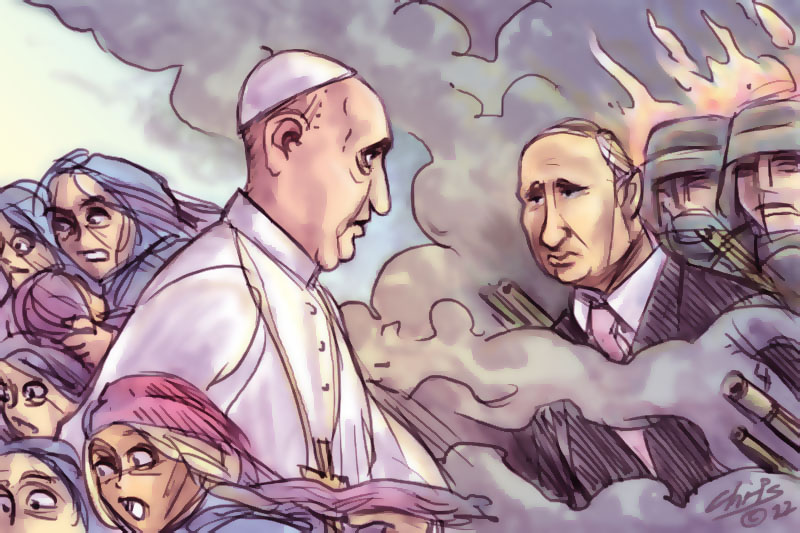
RELIGION
- Miles Pattenden
- 15 March 2022
19 Comments
Even as he sustains the papacy’s now traditional opposition to all forms of war and its emphasis on the extreme suffering war brings, especially to the innocent, Pope Francis has, in recent weeks, taken a different, more partisan approach which he and others must feel is justified.
READ MORE 
-

AUSTRALIA
- Paul Cutler
- 07 March 2022
5 Comments
Most people would agree that the government should have the power to cancel the visas of, and deport, non-citizens who are serious or dangerous criminals. Nobody wants to be the victim of a crime or to live in an unsafe society. We have enough criminals without keeping additional ones.
READ MORE 
-
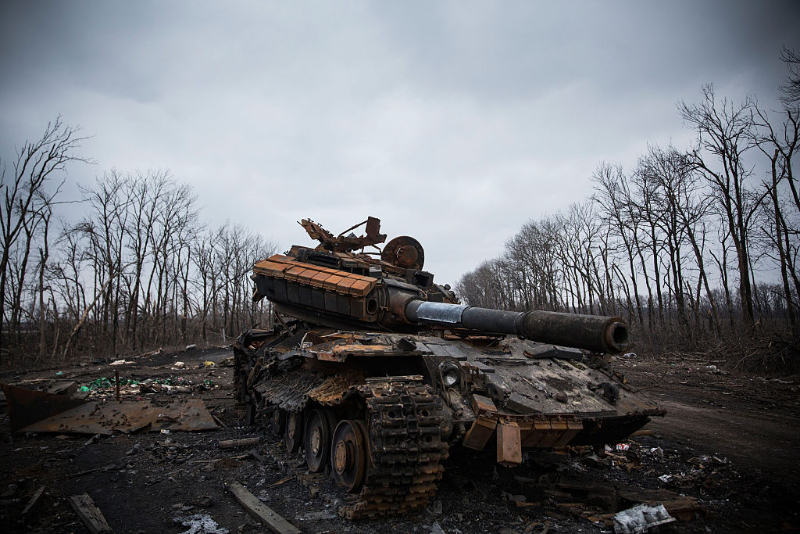
INTERNATIONAL
- Justin Glyn
- 07 March 2022
26 Comments
Ukraine, a site of conflict over many centuries, is once again the scene of battle. First thoughts must be with the civilian population and Pope Francis’ call for prayer is probably the most practical course for most of us far from the action. Unfortunately, while it is clear that there have been casualties, both military and civilian, on both sides, the fog of war makes it very difficult to say more.
READ MORE 